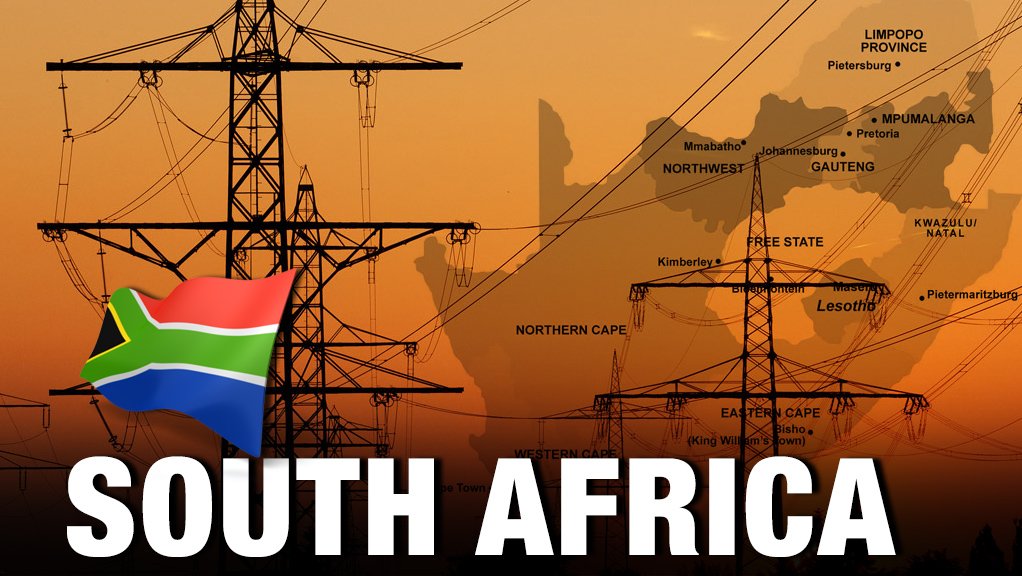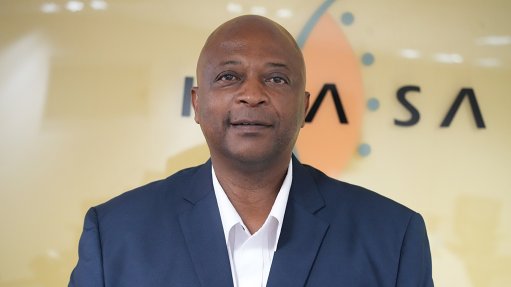Energy constraints more troublesome than platinum strike – FMF
The impact of South Africa’s ongoing strained energy supply has been more devastating than the effects of the protracted strike in the platinum belt, the Free Market Foundation (FMF) said on Thursday.
South Africa’s economy was 13%, or R366-billion, smaller than it would have been had energy supply been stable, and loadshedding and forced lower energy use by industry did not occur, said FMF executive director Leon Louw during a media briefing at the group’s offices in Bryanston.
The loss to the economy – which was estimated at the “lower end of the scale” – was a result of a failed energy policy, he noted, adding that: “No energy means no growth, and energy insecurity is actually an energy catastrophe.”
“[The energy crisis is] devastating on a scale that makes the [ongoing five-month strike in the platinum sector] trivial [by comparison],” Louw said, adding that the lack of sufficient energy supply dwarfed anything else challenging the economy.
The ongoing Association of Mineworkers and Construction Union- (AMCU-) led strike at South Africa’s top three platinum producers was reported to be causing an economic slowdown, with speculation emerging that the country could head into a recession.
The strike had also cost the producers about R22-billion in lost revenue and the workers nearly R10-billion in lost wages.
“We have recurrent [electricity] surpluses and shortages,” Louw commented, as Eskom on Thursday declared its fourth power emergency this year on the back of a severely constrained national power system, which could lead to loadshedding.
The power utility resorted to loadshedding on Wednesday night after warning of a supply shortage.
Two emergencies were announced on February 20 and 21, which were lifted fairly quickly without load shedding being implemented.
This was followed by a nationwide blackout on March 6 – the first time that the utility had resorted to rotational loadshedding since the country’s power crisis of 2008.
“Keeping the lights on is keeping us in the dark,” said Louw, pointing out that Eskom’s demand-side management energy restrictions on industry were stifling economic growth further and had been damaging to foreign and domestic industrial and other investment opportunities.
Following the 2008 blackouts and imposed loadshedding, Eskom moved to buy back energy from companies and in some cases, forced a 10% energy use cutback for South Africa’s largest energy consumers during “emergencies”.
But he pointed out that Eskom needed to shift the electricity cuts to the more flexible consumers – South Africa’s households.
“The [consumers] with flexibility in [electricity demand] are households and that’s where we should have the cuts – not production,” Louw stated, noting a need to reverse an “anti-industry, pro-household” discrimination when it came to energy supply.
Further, he suggested implementing a price increase mechanism, particularly for households, to limit use in the interim as energy capacity was built up, and allowing immediate feed-in tariffs.
“We have a failed monopoly, but its not Eskom’s fault,” Louw said, explaining that the parastatal had been a “victim” of government’s failure to implement strategic policies aimed at introducing competition and dividing Eskom’s assets.
South Africa was failing to implement a 1998 White Paper on Energy Policy that would enable new entrants and stimulate competition, as well as the more recent National Development Plan (NDP), which comprised many of the same provisions as the White Paper, with both setting the standard for the creation of an “electricity market”.
To get back on track to a stable energy environment, a competitive electricity market needed to be established, along with the establishment of an independent electricity grid and independent power producers (IPPs).
Further, the resurrection of the Independent Systems and Market Operator, or ISMO, Bill, which had been shelved by Parliament, was critical to take control of planning, procurement, contracting and systems operations.
“We are one of the few [countries] left in the world to have an [energy] monopoly,” Louw said, adding that electricity generation, transmission, distribution and control should be separated and independently operated.
A radical policy was needed – an investor-friendly framework that instilled competition and good governance, removed distortions, enabled a choice of suppliers, allowed open access to the grid and encouraged private-sector and IPP contributions.
The single-buyer model should be abandoned and the entry of competing independent generating companies to sell to willing buyers across the grid should be introduced.
This is a policy that South Africa already had in the unimplemented 1998 White Paper and the NDP, reiterated FMF chairperson Terry Markman.
Comments
Press Office
Announcements
What's On
Subscribe to improve your user experience...
Option 1 (equivalent of R125 a month):
Receive a weekly copy of Creamer Media's Engineering News & Mining Weekly magazine
(print copy for those in South Africa and e-magazine for those outside of South Africa)
Receive daily email newsletters
Access to full search results
Access archive of magazine back copies
Access to Projects in Progress
Access to ONE Research Report of your choice in PDF format
Option 2 (equivalent of R375 a month):
All benefits from Option 1
PLUS
Access to Creamer Media's Research Channel Africa for ALL Research Reports, in PDF format, on various industrial and mining sectors
including Electricity; Water; Energy Transition; Hydrogen; Roads, Rail and Ports; Coal; Gold; Platinum; Battery Metals; etc.
Already a subscriber?
Forgotten your password?
Receive weekly copy of Creamer Media's Engineering News & Mining Weekly magazine (print copy for those in South Africa and e-magazine for those outside of South Africa)
➕
Recieve daily email newsletters
➕
Access to full search results
➕
Access archive of magazine back copies
➕
Access to Projects in Progress
➕
Access to ONE Research Report of your choice in PDF format
RESEARCH CHANNEL AFRICA
R4500 (equivalent of R375 a month)
SUBSCRIBEAll benefits from Option 1
➕
Access to Creamer Media's Research Channel Africa for ALL Research Reports on various industrial and mining sectors, in PDF format, including on:
Electricity
➕
Water
➕
Energy Transition
➕
Hydrogen
➕
Roads, Rail and Ports
➕
Coal
➕
Gold
➕
Platinum
➕
Battery Metals
➕
etc.
Receive all benefits from Option 1 or Option 2 delivered to numerous people at your company
➕
Multiple User names and Passwords for simultaneous log-ins
➕
Intranet integration access to all in your organisation





















